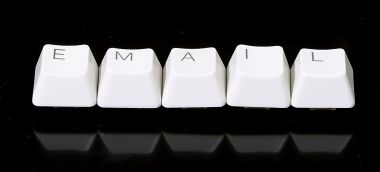Using email effectively is the key to productivity. More so, using it as little as possible at appropriate times is key. Here’s how you shouldn’t check your email while working.
The Do Nots:
Check mail first thing in the morning Get started on work first, then check mail at a specific time afterwards. When you begin with email, it muddles your day. You’ve suddenly got 10 things to think about without having started any work for the day. Don’t touch your email until after an hour. Any important messages, memos, meetings etc, can be passed to you by co-workers. You’ll be much more productive getting an early start on your work before any distractions. Never Check Your Email First Or Last – [LifeDev]
Reply immediately Organize what emails need action and set a time in day to reply to them all. Rarely do emails need actioning immediately. Save/organize/star the emails you want to reply to and set a time to handle them later. Other than preventing you from spending half and hour checking and replying and thinking about replying to emails, this will also allow you some time to casually think about your responses. Maybe you decide you don’t even need to reply to some. Apply the GTD 2-minute rule, but halve it. If you can write a reply to an email in 1 minute or less, then reply right away. Otherwise, put it away to reply later. Remember the 4 D’s when deciding what to do with each email.
Delete it – Delete 2. Do it – reply if under 1 minute 3. Delegate it – forward if actionable for someone else 4. Defer it – put away [folder/star etc] for later
Check personal emails/ blog stats etc Have a work email or filter personal/work contacts so you’re only receiving work-related emails while at work. You don’t need to handle personal emails at work. If you like to relax and check those on your break, do so, but don’t let it affect your workflow. If you see an email from a friend amongst work emails, it’ll be hard to resist reading. Keep them separate and organize your time. If you do use your work email for personal emails also, like in this NYTimes report, I would suggest filtering everything you can so work stays work and play stays at home. Use the Greasemonkey Filter Assistant script to easily create filters for email contacts.
Get notified If you use Outlook or an email client that allows desktop/browser notifications, turn them off. Nothing disrupts your workflow like email notifications popping up. Set times to check; maybe twice a day. Intersperse these with your reply times. Email isn’t a live conversation. No-one expects you to reply straight after they send one through, people will begin to expect your emails at your designated reply-only times. This takes discipline, but does wonders to keep you on track. If you use something like Gmail Notifier, you can disable automatic email checks and only check emails manually.
Spend a lot of time on replying Emails aren’t novels. They shouldn’t even be long conversations. Keep your replies as succinct as possible. Give straight answers and stay on point. If you receive long emails, do your best to speed read so you’re not spending more than a few minutes on each email. When replying to a long email, keep it ultra-short. Use dot points and make it easy for the recipient to reply with short answers. Try the Time Tracker Firefox extension to track time spent on emails. It comes with stats and an alarm.
The Do:
Set up a system that works for you. If you require constant updates of emails, then keep notifications up. Maybe find a better way to get those updates, like through your mobile. If your workplace has bad email practices, or you see a lot of time wasted, talk to someone about it. If you’re a GMail user, get into filters and learn how to use them well. Set a schedule to include email checking and replying. Email should make work faster and more productive.
